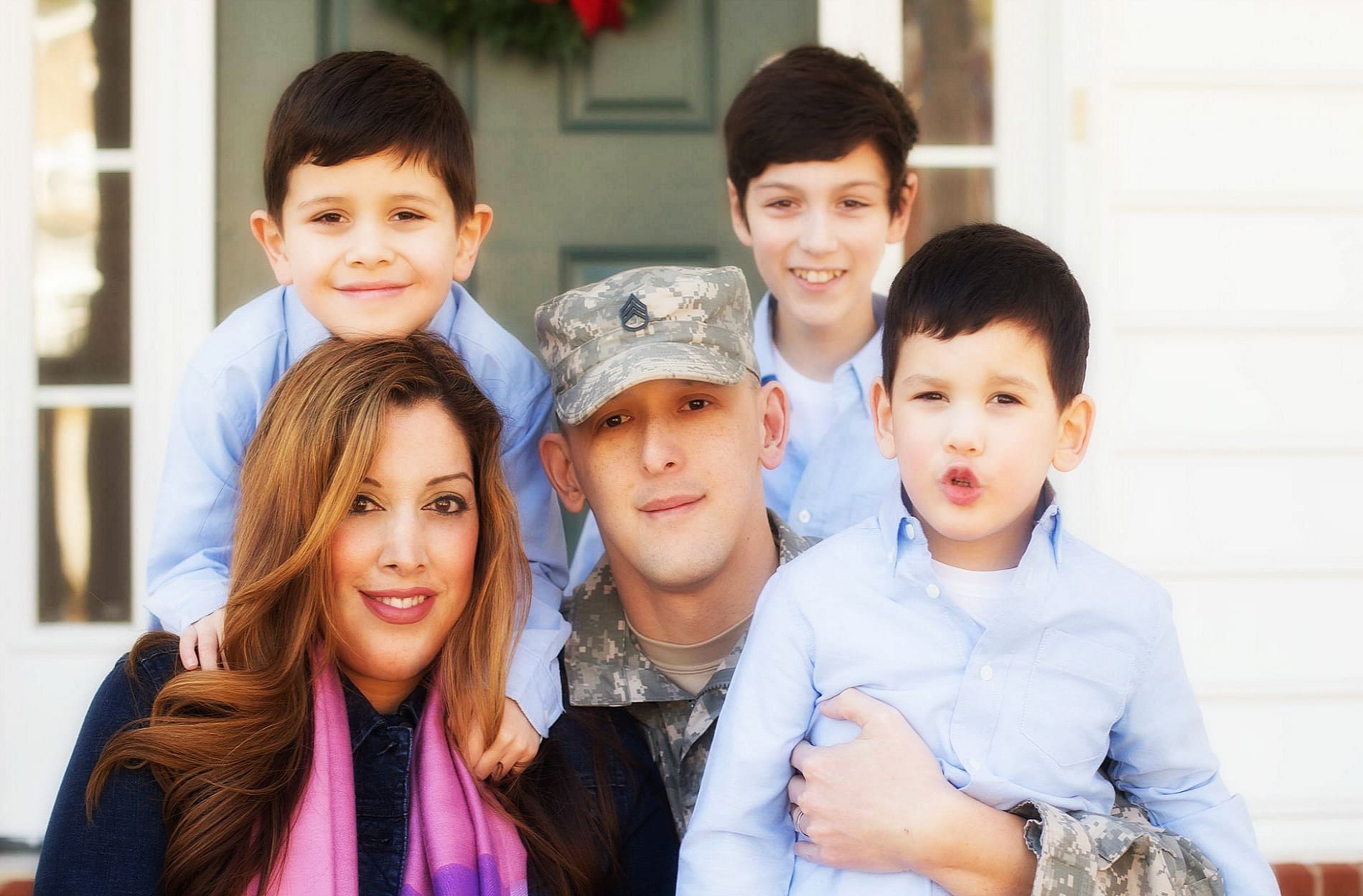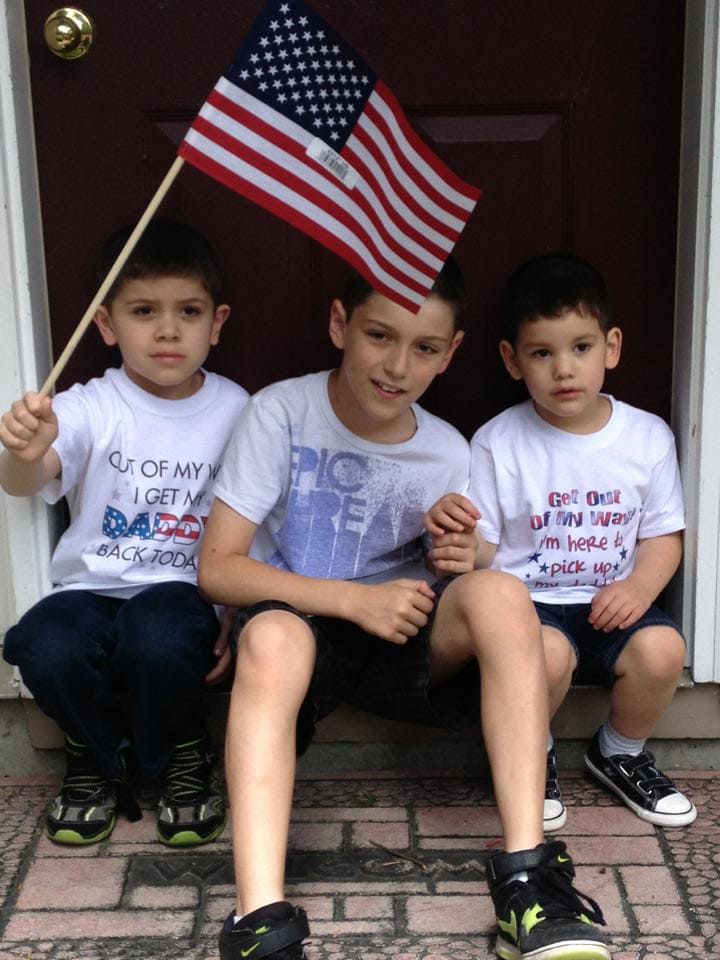November 09, 2015
By Ingrid Herrera-Yee
 In the past eight years, my husband has been combat deployed three times to Iraq and Afghanistan. We have experienced several separations due to trainings and five PCS (permanent change of station) moves that had us moving back and forth across the country, tearing us away from family and friends. It was easy for me to realize that I needed additional support for myself and for my family. I was dealing with parenting on my own, newly diagnosed autism in my children and I often felt overwhelmed.
In the past eight years, my husband has been combat deployed three times to Iraq and Afghanistan. We have experienced several separations due to trainings and five PCS (permanent change of station) moves that had us moving back and forth across the country, tearing us away from family and friends. It was easy for me to realize that I needed additional support for myself and for my family. I was dealing with parenting on my own, newly diagnosed autism in my children and I often felt overwhelmed.
As a clinical psychologist, I knew to look for a resource with a solid foundation based on research and best practices. I looked for support through the military, but as a National Guard family, often these resources were far from home and difficult to fit in to my busy schedule. I found online support, which definitely helped, as I made connections with others who were going through similar situations. What I could not find was a combination of solid resources based on best practices with the support of those who understood. Luckily, I found NAMI Homefront, which felt like a welcome refuge among friends and people who understood with the added benefit of well-researched programming that met all of my needs.
NAMI Homefront is a peer-education program developed specifically for families of military service members and veterans who have experienced a mental health condition, such as PTSD or depression. Family members of service members and veterans teach the program and provide information on how to support our service member, training that helps you become more skilled at advocating for your family, and a wealth of resources ranging from help with finding a mental health provider all the way to what to do in a crisis.
 When I first signed up for the six-week program, I was concerned about the time commitment I was making. As a working mother—with three very active boys—time can be a hard thing to find. Surprisingly, I was able to attend every class and came to view it as “me time.” The content is so specific and relevant to our military culture that I became engaged immediately. Being able to feel safe while openly discussing the experiences of my family, like what it’s like to care for kids struggling while missing their dad, was invaluable.
When I first signed up for the six-week program, I was concerned about the time commitment I was making. As a working mother—with three very active boys—time can be a hard thing to find. Surprisingly, I was able to attend every class and came to view it as “me time.” The content is so specific and relevant to our military culture that I became engaged immediately. Being able to feel safe while openly discussing the experiences of my family, like what it’s like to care for kids struggling while missing their dad, was invaluable.
As a military spouse, I am also keenly aware that confidentiality is particularly important to families. I know that as family members, we often worry about how participation in such programs could affect our service member’s career, or we worry that it could get back to their command somehow. It is made clear at the beginning of every class that what is said in class stays in class. This adds to the ability of all members to speak freely about their concerns, their fears and their feelings. For me, being able to discuss my own concerns as well as those of my husband made it much easier to come up with problem-solving strategies that continue to work for us.
One of the most beneficial aspects of NAMI Homefront was the extensive list of resources that were offered as part of the class. I received an online manual that offered information on how to access programs, benefits and resources for service members, veterans and for the family. My group was particularly interested in the information about trauma, combat stress, TBI (traumatic brain injury) and PTSD, but there is a lot you can gain from the resources alone.

The information applied to all eras and services and our group embodied that diversity. We learned how to recognize mental health conditions, the challenges presented by stigma, strategies in d
eveloping a crisis file, understanding trauma and different mental health diagnoses, how to navigate through services offered by the Department of Defense and the Veterans Administration and how take care of yourself as a caregiver or family member.
If you are a family member that has any concerns about their service member or veteran, sign up to participate in this course. You will find a very welcoming group, timely and pertinent information, teachers and fellow participants who understand and a solid foundation with information to help navigate through the difficulties we can all encounter as military families. For me, it gave me the tools to navigate future deployments as a “single parent” and resources to help my boys through their diagnoses as well. Now I feel better equipped for the next training or deployment that heads our way.
Submit To The NAMI Blog
We’re always accepting submissions to the NAMI Blog! We feature the latest research, stories of recovery, ways to end stigma and strategies for living well with mental illness. Most importantly: We feature your voices.
LEARN MORE